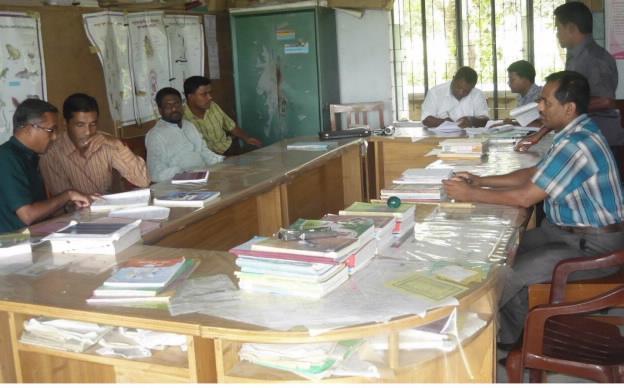Communicative space and working locally: A report of a participatory action research project in a remote rural school in Bangladesh
If you do care about bringing change in rural secondary education in Bangladesh and are interested in action research, you can spend some time reading this article. While critics repeatedly talk about teachers’ failings and absence of a system that might enable teachers to take care of their own practices, we have very little evidence on how to bring change in the actual place. But, how such system can be developed where teachers discuss and explore ways to bring changes in their existing practices. Can PAR processes be a response to the failings? Can PAR processes bring change in the localized context of rural education in Bangladesh?
Some secondary school teachers and the author worked together in a PAR project in a rural context of Bangladesh around five years ago. We explored the impact of PAR processes in developing a space for professional sharing and evidenced changes in teacher-student relationship and attitudes.
Dr. Kent Glenzer, who led the review of this article, wrote: “The subject matter of your research is very important, and represents — as you know — a real addition to the existing literature on rural school reform in Bangladesh.” His words reminded me of the last day we reviewed the impact of the project on teachers’ practices. The head teacher (gate keeper of the project) was with the research team. He articulated that he had noticed both teachers and students were becoming less shy in posing questions in classroom and exploring answers together.
In the final decision letter Dr. Hilary Bradbury, Editor in Chief, Action Research Journal, wrote: “Importantly, you make a broad argument that such changes are needed if education is to play a role in shaping the future citizens that Bangladesh needs.” Her words are encouraging and I am feeling more responsibility to work for creating change in rural context. I hope this blog post will invite the readers to read the article and participate in the discussion.
We invite you to learn more about this experience by reading our article HERE. Free 30-day access is available for this article beginning 24 October.
After you’ve had a chance to read this piece, please share your thoughts, ideas, or experiences with our community in the comments below so we can continue this discussion!
- Making Public Deliberations Inclusive with Mixed Methods AR - October 26, 2020
- Participatory action research with Aboriginal Elders: Ngulluk Koolunga Ngulluk Koort project - October 12, 2020
- Bringing the relational self to ART: Interview with Dr. Yvonne Skipper - October 1, 2020

